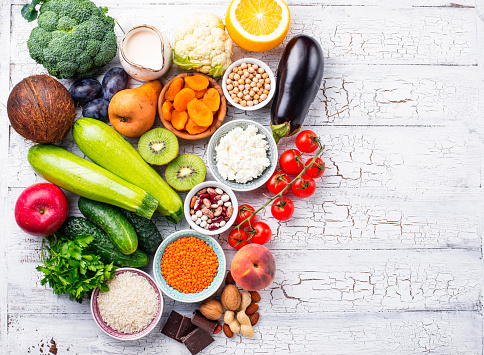Sunlight, an ally for health and well-being

Sunlight is not only an inexhaustible source of energy that can be transformed into electricity, it is also an inexhaustible source of health and vitality for human beings, according to some specialists in natural or complementary medicine.
María del Mar Molina, an expert in nutrition and orthomolecular dietetics, has created a method to harness sunlight, using it as an everyday medicine that helps us "live longer, sleep better, and lose body fat," she explains.
One of the facets of her method, called the "solar diet," is nutrition, but Molina's approach also includes a series of practices that seek to "recover the habits we've lost and reconnect with our ancestral nature ," she tells EFE.
Its fundamental pillars are daily sunlight, ancestral nutrition, nocturnal fasting , protection from artificial light and connection with the earth and nature.
Her approach to holistic health is captured in a book of the same name as her method , The Solar Diet. In it, she advocates a return to natural habits such as sun exposure, being in contact with nature , and maintaining a diet rich in ancestral nutrients, as key elements for a healthy life and preventing modern diseases.
“Sunlight is an essential nutrient for health. Not only does it activate vitamin D production, but it also regulates our hormones, synchronizes our circadian rhythms (biological rhythms that occur within 24 hours), improves metabolism, optimizes rest, and has a direct impact on our energy, sleep, weight, and longevity,” says Molina.
Sunlight is an essential nutrient for health. Not only does it activate vitamin D production, but it also regulates our hormones, synchronizes our circadian rhythms, improves metabolism, optimizes rest, and has a direct impact on our energy, sleep, weight, and longevity.
This expert adds that "circadian rhythms are biological clocks that synchronize processes such as appetite, sleep and wakefulness, digestion, and metabolism . Without sunlight as a natural signal, diet, exercise, or supplements become less effective."
“Sun exposure, when regular and progressive, strengthens the immune system, improves vitamin D production, and optimizes metabolic functions. However , sporadic and excessive exposure, such as sudden sun exposure during summer vacations after spending the entire year indoors, can increase the risk of skin damage, ” he warns.
According to this specialist, potential skin damage depends not only on our exposure to the sun, but also on "poor diet, excessive artificial light, lack of contact with nature , and disruptions in circadian rhythms—all factors of modern lifestyle that affect the skin's ability to naturally manage solar radiation."

Julieth eats low-glycemic foods. Photo: iStock
Among other benefits, sunlight increases the secretion of serotonin, or the "feel-good hormone," "a substance linked to emotions that influences gut health," while exposure to artificial light at night disrupts melatonin production and contributes to mood disorders," she adds.
A healthy relationship “The key to optimal health isn't avoiding the sun, but rather reconciling ourselves with this energy, recovering our natural rhythms and our relationship with light ,” Molina points out.
In his opinion, "rather than avoiding the sun, we need to relearn how to enjoy it intelligently, synchronizing ourselves with natural rhythms, beginning with the light of dawn."
More than avoiding the sun, we need to relearn how to take it intelligently, synchronizing ourselves with natural rhythms, starting with the light of dawn.
She explains that when exposed to early morning sunlight, the body “naturally triggers the production of the hormone cortisol, which wakes up the body and prepares the digestive system to receive food.”
Other routine adjustments include “reducing exposure to artificial light, choosing foods that respect our biology, and eating only during daylight hours and not at night , as doing so would interfere with our biological signals, affect melatonin production, and contribute to metabolic disorders such as obesity, type 2 diabetes, and even insomnia,” Molina adds.
The expert explains that vitamin D, which our bodies produce when we expose ourselves to the sun, is key for the immune system, bones, and the prevention of autoimmune diseases. It also influences sleep quality, mood, and mitochondrial function, which is the energy engine of our cells.
"In fact, sunlight is an ancient nutrient that we've forgotten. We don't just eat with our mouths; we also 'eat light' through our skin and eyes," he concludes.
Keys to take advantage of it "The solar diet is a return to who we are. It's recovering what human biology needs to function well. It's a return to a lifestyle that was given to us and we've forgotten. It's living in harmony with the sun, the earth, and your own body ," says Molina, who then offers some tips for living in accordance with the principles of this method.
1. Get some sun exposure every morning at sunrise. “Even if it's just for 10 minutes, expose your skin and eyes (without sunglasses) to natural light. This awakens your circadian rhythms and improves your energy and mood.”

For many people, natural light in a home is crucial. Photo: iStock
2. Avoid screens and LED lights at night. “Switch to red lights after sunset, and wear blue-light-filtering glasses if you have to work or use your phone.”
3. Prioritize ancestral foods. “Eat foods your grandmother would recognize: meats, eggs, fish, seafood, and healthy fats, and avoid ultra-processed products. Try to eat free-range, grass-fed, and wild foods from a known source, avoiding packaged foods. Look for fresh foods: more market foods and less supermarket foods.”
4. Walk barefoot whenever possible. “Also, hug a tree and the animals that live with you at home. This helps regulate your nervous system and improves sleep. It's an energy exchange that our cells need.”
5. Listen to your biological rhythms. “You don't need to eat the same thing or at the same time every day. Learn to identify true hunger, and fast when you're not hungry. Allow yourself moments of 'doing nothing,' which are important and another way of 'doing.' These moments with yourself are part of the solar diet, and if you spend them in the sun, their benefits multiply.”
eltiempo





